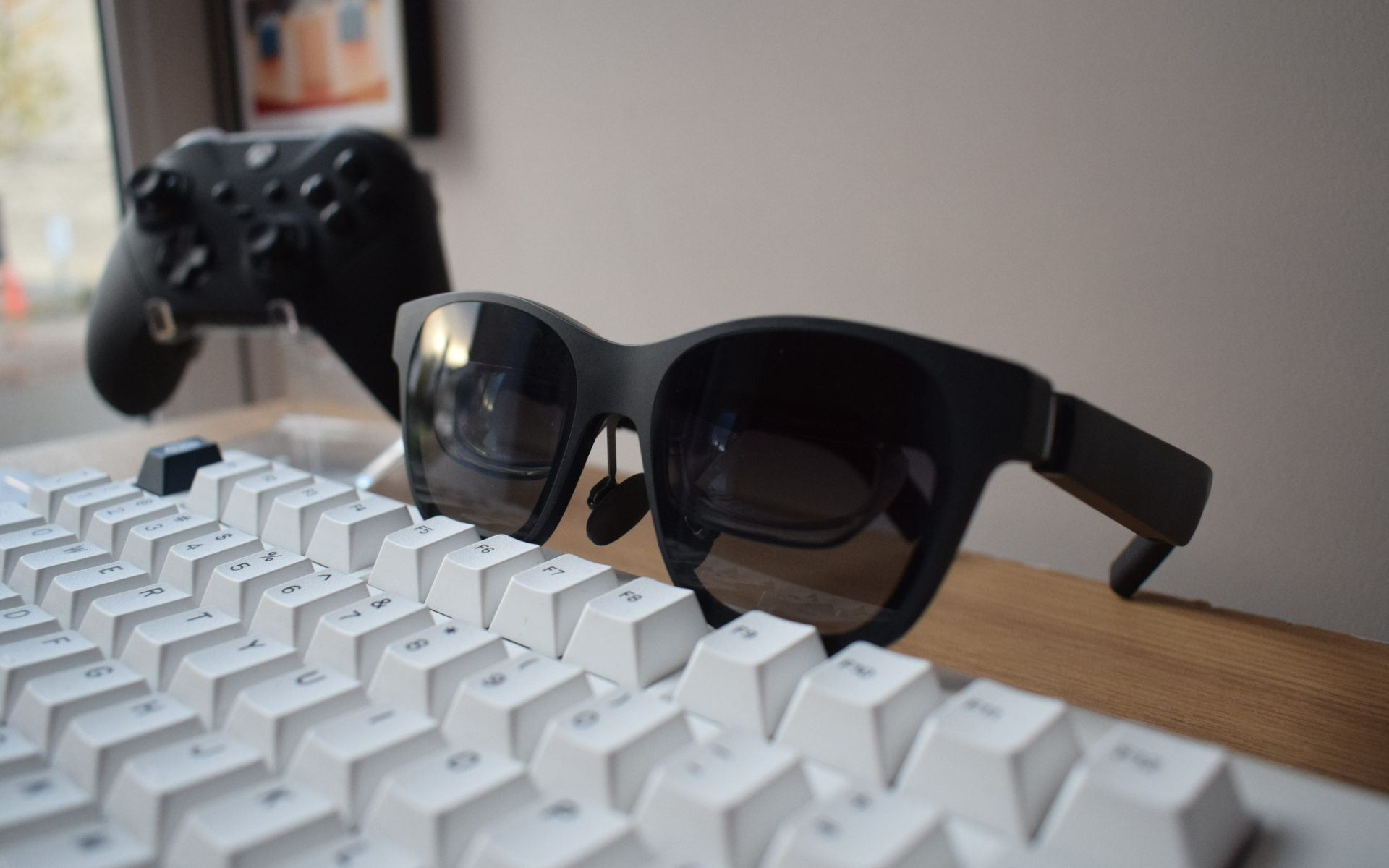Looks like Apple isn't giving up on smart glasses after all
Apple is once again late to the party, but there's one way it could still succeed with smart glasses

Sign up to receive The Snapshot, a free special dispatch from Laptop Mag, in your inbox.
You are now subscribed
Your newsletter sign-up was successful
The race to rule the smart glasses market is heating up.
While Meta is still leading the way with its Ray-Ban AI smart glasses, Apple appears to be getting back in the game after reports that it has "made progress" in developing a specialty chip for smart glasses, including versions with and without augmented reality.
Apple has struggled to make headway in VR with the Vision Pro, where it has also fallen short of Meta's success. Can Apple change that pattern with smart glasses, or is it already too late?
See also: Best phone deals in May 2025
Features: Built-in 12-megapixel ultra-wide camera for pictures and video, Meta AI assistant, 32GB storage, dual open-air speakers, IPX4 protection, 154mAh battery, charging case.
Smart glasses chip in the works at Apple
According to Bloomberg's Mark Gurman, Apple has "made progress" on a specialty chip designed for smart glasses, which could include versions with and without AR functionality. This comes as a surprise considering rumors earlier this year indicated that Apple had shuttered development of a pair of AR glasses.
It looks like Apple isn't giving up on glasses just yet, though. According to Gurman, Apple's new smart glasses chip is based on Apple Watch processors, which are less power and resource-intensive than chips in larger devices like the iPhone or iPad.
This new chip has been modified to be even more power-efficient and appears to be designed to control multiple cameras, suggesting Apple will include cameras on its glasses much like those on the Meta Ray-Bans. Those could be used for anything from basic everyday photography to visual input for AI.
Sign up to receive The Snapshot, a free special dispatch from Laptop Mag, in your inbox.
It sounds like Apple's smart glasses plans are moving past the concept phase at this point since, as Gurman stated, the new smart glasses chip is slated to enter production as early as next year, which means we could potentially see Apple's first pair of glasses hit the market by 2028.
That might sound like it's not too far away. Unfortunately for Apple, by 2028 its first pair of smart glasses might already be generations behind the competition.
Is it too late for Apple to catch up on smart glasses?
Meta has made it abundantly clear over recent months that smart glasses and AR glasses are a huge focus for it. Last year, Meta showed off a genuinely impressive demo of a prototype of its "Orion" glasses and we're expecting to see a new version of its popular Ray-Ban AI smart glasses later this year.
All of that means that by 2028, Meta will likely already be light years ahead of Apple in the glasses market. That's especially probable considering that, according to Gurman, Apple's first pair of smart glasses won't include augmented reality. Meanwhile, there are rumors Meta could launch a version of its Ray-Bans glasses with a built-in display this year.
Meta will already be a seasoned veteran with non-AR smart glasses by the time Apple gets in the race in 2028. That's not to say Apple doesn't have a shot at catching up to Meta. It will just be a major challenge, much like Apple's battle to compete with Meta in the VR market, where Apple was similarly late to the party.
With that said, there is one area where Apple might have an edge on Meta: privacy. Last month, Meta rolled out a controversial update to its privacy policy for its Meta Ray-Ban glasses that effectively forces users to allow Meta to collect their data if they want to use Meta's AI with the glasses (which is pretty much what the glasses are made for).
If Apple can offer comparably stylish, functional, and feature-rich smart glasses with stronger data privacy, it may be able to win some users over from Meta or entice people who might have otherwise skipped smart glasses altogether.
More from Laptop Mag
- The best smart glasses you can buy just got a lot creepier
- Meta Ray-Ban Glasses Gen 3 rumors: What to expect in the next-gen smartglasses
- Meta is hell-bent on making 2025 the year of smart glasses — and I've never been more ready

Stevie Bonifield is a freelance tech journalist who has written for PC Gamer, Tom's Guide, and Laptop Mag on everything from gaming to smartwatches. Outside of writing, Stevie loves indie games, TTRPGs, and building way too many custom keyboards.

